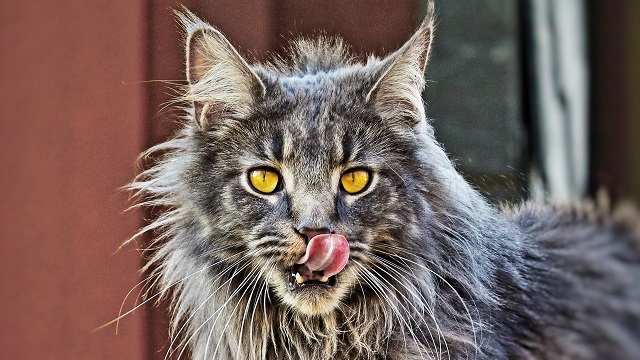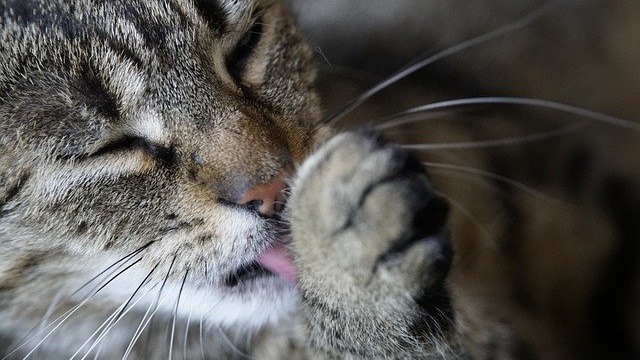Caring for a cat is a wonderful experience; they are sweet, loving and dramatic characters that always keep us amused. A well-cared for cat can live into their teens, but as they age, some adjustments will be necessary to keep a senior cat healthy and happy.
Older cats enjoy a slower pace and it is important to make changes to their home life and routine to reflect their abilities and age. As your cat enters its senior years (cats are considered ‘old’ once they reach the age of ten), you can expect more frequent visits to the vet, closer dietary and behavioral monitoring and an increase in quiet, snuggly moments.
These 5 tips will help you care for senior cats:
Monitor Their Food Intake
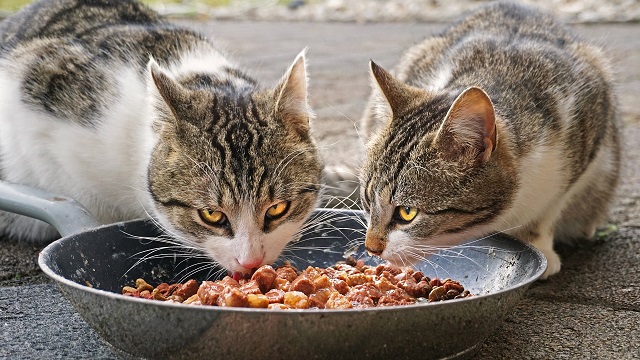
A senior cat has different dietary needs to younger cats, it may be worth speaking to your vet about transitioning your cat onto senior-specific food.
You can help your cat avoid digestion problems by feeding them small meals frequently rather than one big meal. The best way to do this is to measure out their daily recommended amount of food and offer this in small portions throughout the day. If you want to keep your cat occupied and stimulated you can use feeding puzzles to increase their engagement.
It is also a good idea to increase the number of water bowls/ pet water fountains around the house to help encourage your cat to stay hydrated.
If your cat is not drinking enough water even with the increase in availability… It may be worthwhile discussing the possibility of feeding them wet food instead of dry with your vet. This can be a simple way of keeping older cats hydrated.
Keep a close eye on your cat to ensure they are maintaining a good body weight. As cats get older, they may lose and gain weight more easily.
Obesity comes with a range of problems and will put additional stress on a cat’s body. Ensuring your cat’s nutritional needs are met and they are kept at a reasonable weight is vitally important… And a key part of keeping a senior cat healthy!
Don’t Skip Vet Visits
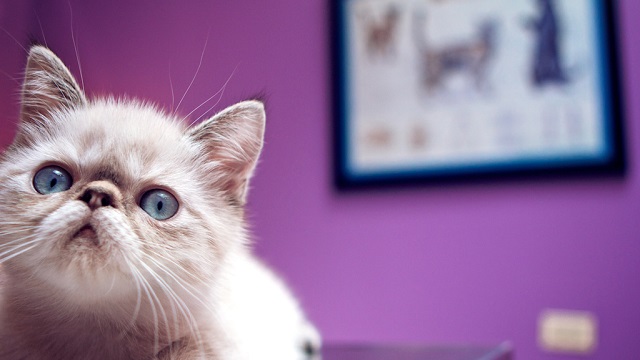
There are a number of challenges that come with caring for elderly cats, so it is a good idea to develop a good relationship with your local vet.
Vet visits are essential throughout your cat’s life but they are particularly important as your cat ages. Older cats should go to the vet at least twice a year to have routine check-ups and discuss care and health issues.
These visits can help you monitor your cat’s weight, check their dental health and pick up on any health issues such as kidney disease as early as possible.
Keep an Eye Out for Changes in Habits and Behavior
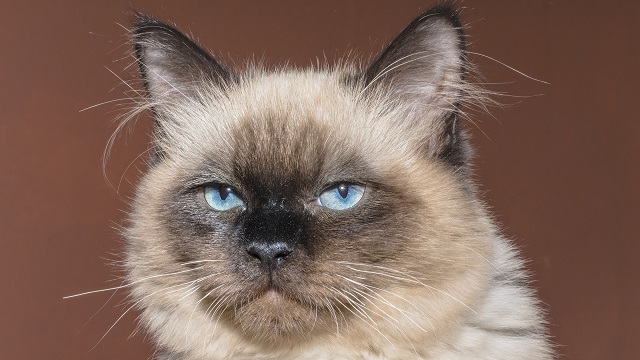
As you may already know, cats are masters at hiding their pain and giving the impression that they are fine, even when they are not.
Sometimes the subtlest changes in habits or behavior can indicate something is wrong. As cats age, they are likely to become less agile and may become needier.
Some common examples of changes that may indicate your cat is due a trip to the vet include:
- Suddenly drinking a lot of water
- Labored breathing
- An increase or decrease in appetite
- Accidents outside of the litter tray
Take note of the behaviors you have noticed and get your cat checked over at the vets. These changes can be key indicators of developing health problems.
The sooner you pick up on these subtle hints that something is wrong, the sooner your buddy can be treated.
Make Areas More Easily Accesible
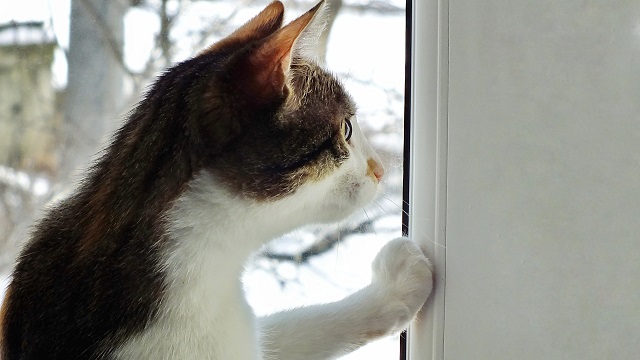
It is common for older cats to be slower on their feet, less agile and experiencing some form of joint pain. Don’t expect your kitty to be able to jump as high as they used to!
Although you may feel that your cat is still capable of leaping up to their favorite lookout spots, giving them options of gentler ways to reach the top and offering them comfortable spots lower down will be appreciated.
A simple way you can help your cat climb up to their favorite spots is by offering steps or carpeted ramps. This way, they don’t have to try to jump up without any support.
Of course, you could lift them up… But it’s much better to give your cat a safe way to independently get up and down! (after all, we know how independent cats like to be).
Think about ways you can make your house more accessible so exploring and moving around is easier on their joints and energy levels.
Make sure your cat has food and water bowls, litter trays, hiding spots and comfortable beds on the ground so they can be easily accessed.
Offer Warmth and Comfort
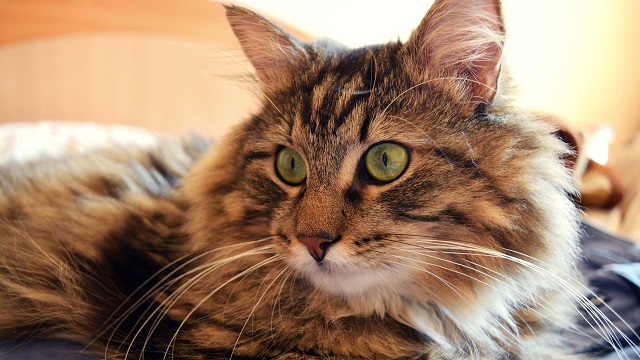
Senior cats need more warmth and extra padding to be comfortable and cozy at home. Adding another blanket layer to their favorite sleep spots and offering extra pillows to sit on will help them be relaxed and happy.
Cats love those creature comforts and elderly cats are no exception to this. It’s an easy way to keep your senior cat healthy and happy!
If you can spend more time snuggling with your feline friend, do it. Strengthen your bond and give them the attention, grooming support and playtime they want. Daily doses of affection are important and will help your cat feel good.
We mention grooming because older cats may struggle to groom themselves as effectively as they used to. Incorporate grooming into your daily routine to help keep older cats looking and feeling great.
Keeping a Senior Cat Healthy and Happy – Conclusion
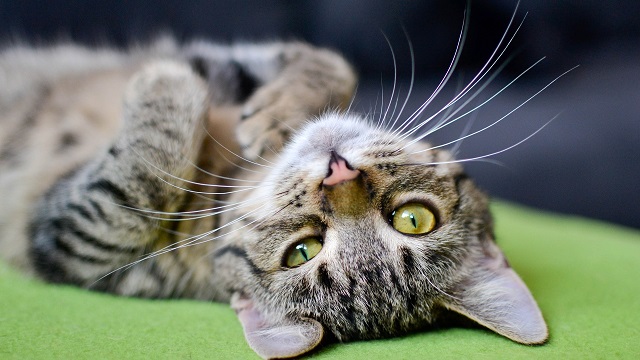
We know watching your dear furry friend get older is hard… But these 5 tips to keep a senior cat healthy and happy will make it easier for you both.
Sometimes it’s the simple things that make all the difference and these tips offer you straightforward ways to ensure your cat is enjoying senior life. Don’t be scared of vet visits, regular checkups and early diagnosis of health problems are both very important.
Article written by Daniel Richardson from Tuxedo Cat.
Ever wondered how your cat’s senses work? Why do they have so many whiskers? Or perhaps why is their tongue so harsh? We’ve got just the post for you: here’s Cat Anatomy 101!



